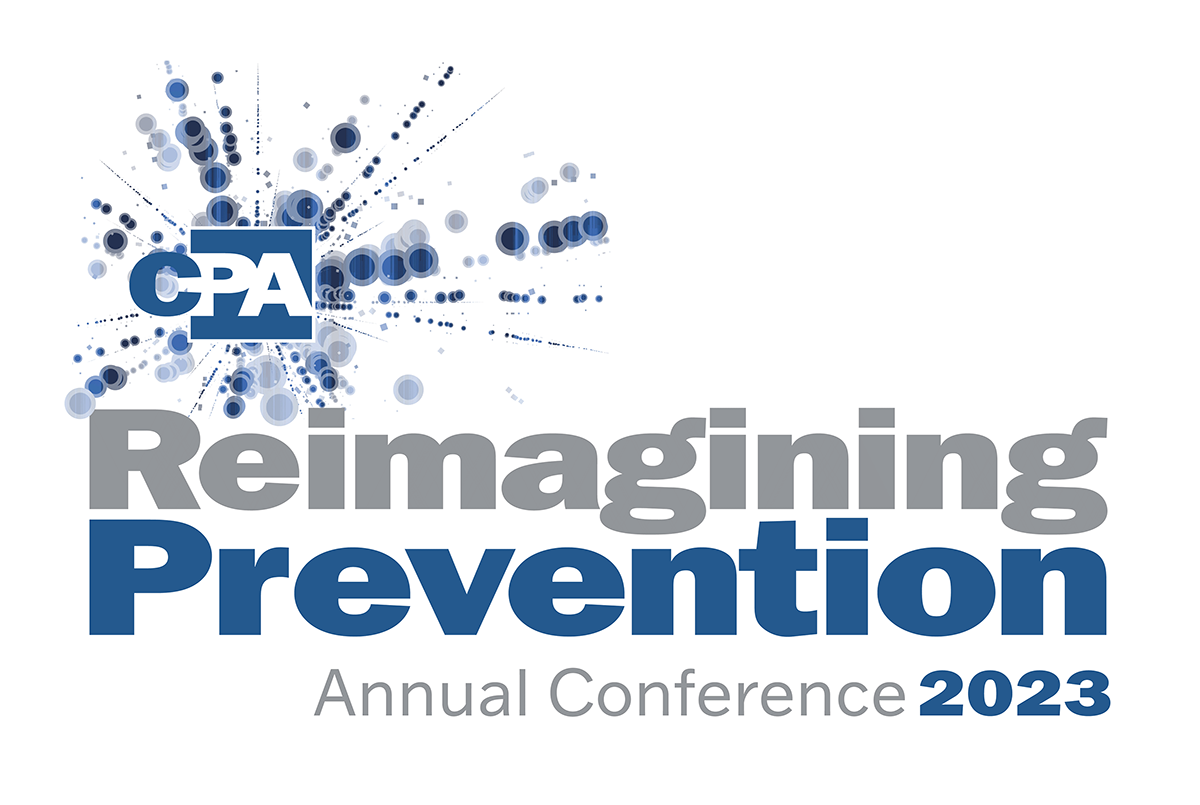
33rd Annual Conference
JUNE 7-9, 2023
Penn Stater Hotel & Conference Center, State College
If You’re Attending,
Download Our Awesome Conference App—Whova!
Keynote Speakers
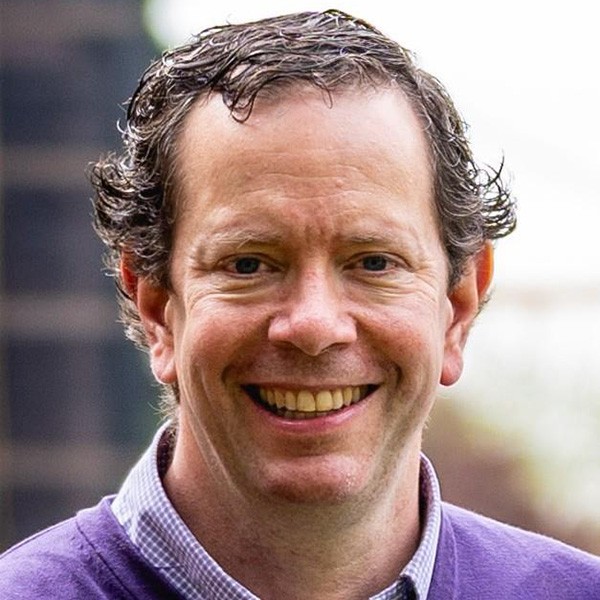
Dr. Jason Kilmer
Associate Professor, Psychiatry & Behavioral Sciences, University of Washington School of Medicine
Communicating Cannabis Science to Communities and Collaborators: Opportunities for Prevention Professionals

Dr. Amelia Arria
Professor, University of Maryland School of Public Health
Promoting Student Success and Resilience through Evidence-informed AOD Prevention Strategies

Dr. Allison Stephens
Director of Networks and Policy, HOPE National Resource Center
Spreading HOPE (Healthy Outcomes from Positive Experiences)
Pricing & Registration
Full (in-person) Conference Registration includes the June 5th online sessions, evening reception, and the keynotes, workshops, and power sessions scheduled June 7-9. Virtual Conference Registration includes the two June 5th sessions and the keynotes and workshops being live streamed, June 7-9.
**The virtual sessions will NOT be recorded. All sessions have to be viewed “live”.
Registration will close on Friday, May 19th, for the in-person event and Friday, June 2nd, for the virtual event.
Virtual Conference
CPA Members – $300
Non-members – $400
Students – $100
Includes the June 5th online sessions and select streamed conference sessions
Full In Person Conference
CPA Members – $425
Non-members – $525
Optional Pre-Conference Session – $70
Includes June 5th online sessions and June 7th reception
Conference Scholarships
The Pennsylvania Commission on Crime and Delinquency (PCCD) is generously offering up to 50 SCHOLARSHIPS to attend, in person, the 2023 CPA Conference! Pennsylvania agencies, coalitions, institutes of higher education, school districts, organizations, providers, and college students are eligible to apply. A scholarship includes:
- Registration for one individual to attend the In-Person Conference, including the pre-conference and evening reception.
- Lodging for up to 3 nights.
- The two virtual sessions on June 5th.
Review the scholarship guidelines and eligibility requirements before applying. The application will close on Friday, April 14th.
Become a CPA Member and save!
Enjoy significant savings by becoming a CPA Member or renewing your old membership.
Pre-Conference Virtual Sessions
Monday, June 5
The following pre-conference sessions are scheduled online and available to all conference attendees.

Presenter: Jonathan Singer, LCSW Professor, Loyola University Chicago, School of Social Work
Date: June 5
Time: 10:00 – 11:30 am
The story of youth suicide always starts with this sentence: Suicide is the second leading cause of death among youth. Unfortunately, that’s often the end of the story. This simple version of a complex issue ignores disparities in suicide risk, perpetuates a one-size-fits-all approach to assessment and postvention, and disrupts individual lives instead of disrupting structural forces that says that some lives are worth more than others. In today’s webinar, I will connect the dots between the individual and structural, and discuss how to think about culturally relevant suicide prevention, assessment, and postvention.
As a result of this session, participants will be able to:
- Identify temporal trends in suicide risk amongst youth
- List the six tiers of suicide prevention
- Discuss how to support youth following a peer’s suicide death
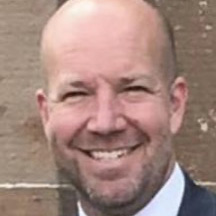
Presenter: Josh Ercole, Executive Director, Council on Compulsive Gambling of PA, Inc.
Date: June 5
Time: 1:00 – 2:30 pm
Today, more people have access to, and are participating in, gambling activities than ever before. While the majority of the population is able to gamble without developing any issues, there are a small percentage of people who are unable to maintain responsible levels of play. Unfortunately for these individuals, this often progresses to a point where several areas of their lives are impacted in a negative way.
During this program participants will learn about problem gambling, how it develops and what can tools and resources are available to prevent problems from starting.
As a result of this session, participants will be able to:
- Become familiar with gambling and factors included in the development of problematic gambling
- Identify prevalence rates and risk factors of disordered gambling
- Discuss warning signs and how to prevent issues from beginning
Pre-Conference In Person Sessions
Wednesday, June 7
Session Options (8:30 – 11:30 am)

Presenter: Joe Markiewicz, Senior Consultant, Building Stronger Communities
Date: June 7
Time: 8:30 – 11:30 am
Many local community prevention coalitions struggle to find an active, meaningful role for young people in their membership. Many state and federal funding agencies stress the importance of engaging young people as part of the strategic planning process. In fact, there has been a good amount of research to support the peer-led prevention model where youth use best practices to plan and implement prevention activities, campaigns and other events in their schools and communities. This interactive session will highlight some of the best practices for recruiting and retaining students in grades 6-12 to be positive change agents for their local coalitions. Some of the prevention frameworks discussed in this session include the 40 Developmental Assets (protective factors), Communities That Care (CTC), Strategic Prevention Framework (SPF) and more. Information will be provided on a variety of prevention tools such as the Pennsylvania Youth Survey (PAYS), Positive Social Norms Approach, Universal Prevention Strategies.
At the end of this session, participants will be able to:
- Understand the latest trends in adolescent problem behaviors from the 2021 Pennsylvania Youth Survey
- How to recruit and train youth for effective Student Action Planning on their coalition boards
- Become familiar with Positive Social Norming and effective Peer-Led Prevention strategies

Presenter: Dr. Martha Thompson
Date: June 7
Time: 8:30 – 11:30 am
MI – Not Just for Treatment Anymore – let’s review Motivational Interviewing and explore ways to utilize this confronting yet compassionate style of conversation to change the narrative with our teams, our staff, our students, our families and move along the continuum of change!
As a result of this session, participants will be able to:
- Define OARS and how it is used in MI
- Describe how MI can be integrated into parent engagement.
- Identify 3 ways MI addresses discord
Full Conference Main Event
Wednesday, June 7 (blue highlighted columns are the sessions available virtually)
Lunch (11:30 am – 12:45 pm)
Welcome (12:45 – 1:00 pm)
Keynote (1:00 – 2:15 pm)

Presenter: Dr. Jason Kilmer, Associate Professor, Psychiatry & Behavioral Sciences, University of Washington School of Medicine
Date: June 7
Time: 1:00 – 2:15 pm
How has cannabis changed since the 1970s, 1980s, 1990s, and even within the past 10 years? What does the science say about cannabis use and impacts on sleep quality, cognitive abilities, academic outcomes, and mental health? What are the signs of withdrawal from cannabis that would let someone know they might be addicted? We will explore the answers to these questions and more with a focus on opportunities for prevention and intervention.
As a result of this session, participants will be able to:
- Identify a screening measure for Cannabis Use Disorder
- Describe at least 2 risks/outcomes associated with cannabis use
- Identify at least one prevention or public health approach/opportunity for use in their community
Workshop Options (2:45 – 4:00 pm)

Presenter: Andrea Dolges, Executive Director / President, The Center for Youth and Community Development / Respective Solutions Group, Inc.
Date: June 7
Time: 2:45 – 4:00 pm
Coalition members and leaders seeking more inclusive vision and voice in local communities and / or focused on youth perspectives in local prevention initiatives will hear successes, struggles, and strategies from Adams County’s “Collaborating For Youth” coalition. Our history with CTC and DFC frameworks and recent steps through federal Strategic Prevention Framework funding have defined our work and driven us to success, because we have put data and the meaning of data from community perspectives first. Efforts, inspired by CPA and prevention colleagues, have sought to foster honest dialogue around representation, language equity, and action around social justice and equity. This session will include a presentation on these topics, providing an opportunity to engage with CFY’s team around building similar principles in local communities across Pennsylvania. If you’re ready to talk about coalition work in the 2020’s and beyond, join positive discussions and learn from one another, this is for you!
At the end of this session, participants will be able to:
- Identify strategies to engage youth in coalition leadership.
- Evaluate methods to enhance language equity and coalition participation across cultures.
- Take away coalition and prevention strategies learned over 20 years of experience and through a global pandemic.

Presenter: Alix Cohler, Master Facilitator, Collegiate Empowerment
Date: June 7
Time: 2:45 – 4:00 pm
Today’s training has to be energizing, engaging, empowering—and full of valuable content, too—but too many presenters still hide behind their notes and a podium. In a world transformed by the Internet, the iPhone, COVID-19, and TikTok, we must rethink how we approach student development. This session gives you the insight and tools to redesign current learning experiences and start to build your own facilitator program. This train-the-trainer experience builds the skills you need to become a context expert, because we teach students, not subjects. Discover training practices that go against standard practice!
At the end of this session, participants will be able to:
- Experience first-hand a high-energy, interactive, and fun demonstration and translate their experiential learning insights.
- Engage participants with the unique, highly-researched Learn-Say-Do-Reflect Model™ to increase engagement, retention, and fun
- Enhance their facilitation skills focusing on the four core elements: movement, eyes, voice, and tech.

Presenter: Josh Ercole, Executive Director, Council on Compulsive Gambling of PA, Inc.
Date: June 7
Time: 2:45 – 4:00 pm
In October 2017 a major gambling expansion bill was passed in Pennsylvania, allowing for the possibility of more legalized gambling than ever before. Over the past couple of years, we have seen the launch of several new types of gambling, with more being made available soon. It is vital for treatment and prevention professionals to not only be aware of this expansion in order to better serve clients, but also to have a better understanding of the tools and protections that are in place to prevent and assist with problems.
At the end of this session, participants will be able to:
- Become familiar with at least five forms of legislated gambling in Pennsylvania
- Discuss the impact of expanded gambling, and how it has lead to problems with new populations
- Identify newer protections that have been included, specifically related to online gambling

Presenter: Michael Palladini, Pharmacist Educator, Alosa Health
Date: June 7
Time: 2:45 – 4:00 pm
Participants will learn which substances are currently being identified by law enforcement and treatment personnel in Pennsylvania, including descriptions and sources, risks, trends, and available treatments.
At the end of this session, participants will be able to:
- List several drugs that are causing harm among users.
- Understand the trends of drug use and what promotes and maintains those trends.
- Know the potential treatments for specific substance use disorders.
Power Session Options (4:15 – 4:45 pm)

Presenter: Craig Bowman, President, Common Ground Consulting LLC
Date: June 7
Time: 4:15 – 4:45 pm
We’ve all heard that social media will be the downfall of civilization as we know it, but is it possible it could also be a force for good? Teens across the U.S. seem to think so. On Gas, users sign up with their school, add friends and answer polls about their classmates. But the questions in the polls are intended to boost users’ confidence rather than damage it. And since October of last year, it’s been the fastest-growing social media app of all time. In this Power Session, we’ll get you up to speed on this app and the growing number of other positive social media apps grabbing the attention of young people in our communities.
As a result of this session, participants will be able to:
- Understand the growing trend among young people who want to use social media in positive ways.
- Recognize and describe emerging social media apps like “Gas” and “Zigazoo.”
- Define creative ways to shift the narrative when it comes to the positive possibilities of social media among youth.

Presenter: Roger Spaw, Evidence-based Practices Project Manager, Evidence-based Prevention and Intervention Support (EPIS) @ Penn State
Date: June 7
Time: 4:15 – 4:45 pm
EPIS provides Technical Assistance and coaching about prevention and implementation science to the field through virtual and in-person training, one-on-one and group-based coaching and consultation, professional learning communities, etc. In order to expand the reach of our TA to a broader audience and increase its uptake, we are developing the Prevention Learning Portal an online e-learning platform. The Portal will offer a library of asynchronous, self-paced eLearning materials that can be easily accessed by prevention stakeholders.
As a result of this session, participants will be able to:
- Understand the technical assistance services offered by EPIS at Penn State
- Learn about and be able to access the Prevention Learning Portal for there professional development.
- Learn about and access the cadre of other technical assistance EPIS provides.

Presenter: Janna Sanders, Consulting and Research Psychologist, Devereux Center for Effective Schools
Date: June 7
Time: 4:15 – 4:45 pm
Key school and district stakeholders will benefit by learning about the implementation of social emotional learning programs from 2019 through the present across Montgomery County. This session will share real world recommendations related to garnering initial and ongoing buy-in, planning for successful implementation, and building sustainability. The goal of this presentation is to share what we have learned, provide key takeaway for attendees regardless of where they fall in the implementation timeline, and share resources that others can use to improve the efficiency and effectiveness of their implementation.
As a result of this session, participants will be able to:
- Understand positive student outcomes achieved through teacher-led SEL program delivery.
- Improve implementation of their own programming, regardless of where they are in the timeline.
- Access resources to improve the efficiency and effectivenes of their implementation.

Presenter: Jill Northey, Prevention Director, Armstrong Indiana Clarion Drug & Alcohol Commission
Date: June 7
Time: 4:15 – 4:45 pm
Every year, AICDAC hosts a Student Leadership Conference for high school students offering an opportunity to build their own understanding of the influence of ATOD, problem gambling awareness, mental health, promote positive choices, learn about community resources, and help to build strong leaders in the community. Each school district within Armstrong, Indiana, and Clarion counties are invited to attend. School districts select students who would benefit from learning more about substance prevention to participate, and the conference is completely free for all attendees. This session will explain the importance of youth engagement, the planning process of the event, and how to implement, and evaluate, including funding sources.
As a result of this session, participants will be able to:
- Understand the importance of hosting events for the youth population
- Coordinate a youth conference to build leadership
- Evaluate the event and develop new ideas for the future
Thursday, June 8 (blue highlighted columns are the sessions available virtually)
Power Session Options (8:30 – 9:00 am)
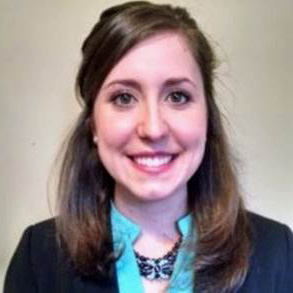
Presenter: Katie Kucz, Prevention Coordinator, Montgomery County Department of Health & Human Services Office of Drug & Alcohol
Date: June 8
Time: 8:30 – 9:00 am
Staff burnout is high across the behavioral health field. The SCA is creatively supporting provider agencies in an attempt to improve staff retention through a variety of activities. Come find out more!
As a result of this session, participants will be able to:
- Interpret county level data regarding staff retention
- Understand grant funded opportunities to support prevention staff
- Apply Montco staff retention activities to own locality

Presenter: Craig Bowman, President, Common Ground Consulting LLC
Date: June 8
Time: 8:30 – 9:00 am
CPA CAN is the cutting-edge collegiate leadership program of the Commonwealth Prevention Alliance (CPA). It is designed to create opportunities for college students to develop new skills and new ways of engaging their peers around stimulant and opioid misuse prevention and positive mental health across the state of Pennsylvania. The program encourages powerful, thoughtful, and strategic collaboration. In this session, you’ll hear from CPA CAN students about their powerful advocacy efforts at colleges and universities across the state.
As a result of this session, participants will be able to:
- Understand the prevention issues of most concern to PA’s college students.
- Recognize the value of engaging the unique perspectives of college students when it comes to prevention strategies.
- Describe the most effective ways of engaging college students in prevention advocacy and messaging campaigns.

Presenter: Kristina Jeanty, Project Director, Penn Medicine Lancaster General Health
Date: June 8
Time: 8:30 – 9:00 am
Community engagement is crucial to coalition work. Communities that exhibit a high level of meaningful involvement create opportunities for sustainable outcomes. Participants will apply a strengths-based approach to building community engagement across key sectors and learn strategies to successfully boost community engagement and increase community well-being.
As a result of this session, participants will be able to:
- Apply a strengths-based perspective to community engagement.
- Identify 5 community sectors and tips to work with them effectively.
- Take away 7 free resources to boost community engagement.
Presenters: Lisa Snyder & Janet Anderson, Population Health Nurse Consultants, PA Dept. of Health
Date: June 8
Time: 8:30 – 9:00 am
As a result of this session, participants will be able to:
- Participants will have a better understanding of Neonatal Abstinence Syndrome, along with the care and process of creating a plan of safe care for baby, outlining specific strategies and referrals so caregivers can be better equipped to care for baby.
- Participants will recognize the extent of services and resources that need to be addressed to maximize outcomes of neonates exposed to all substances
- Participants will learn how to access the Neonatal Abstinence Syndrome Family Guide Tool Kit and how to obtain copies of the guide.
Workshop Options (9:15 – 10:30 am)

Presenter: Sarah Laurel, Executive Director, Savage Sisters Recovery Inc
Date: June 8
Time: 9:15 – 10:30 am
During this session, attendees will learn about xylazine, and review its impact and harm to the human body, community, and public health. Additionally, they will receive updated overdose reversal training. Finally, we will review suggested updated protocols during the acute withdrawal stage. *some content shows graphic wounds*
As a result of this session, participants will be able to:
- Identify xylazine trends in PA & national drug supply. Specify three key differences
- Describe the impact/harm to human body, the community and public health
- Identify proactive ways to respond/treat street level during active use & updated methods of acute withdrawal.

Presenter: Ryan Klingensmith, Founder, Shape The Sky
Date: June 8
Time: 9:15 – 10:30 am
If registering for Part 1 you must also register for Part II.
Life for youth is different now than it was years ago. That’s because teens, tweens, and children have unlimited access to information, apps, and websites. The internet can be helpful, but it can also expose youth to concerning content and behaviors that could affect their mental health.
This is where Shape the Sky comes into play; we’re dedicated to creating responsible children on smartphones and devices. We provide professionals with updated information about the internet and social media so they can provide up-to-date services in the current digital climate.
As a result of this session, participants will be able to:
- Identify how children explore and share information about mental health through technology
- Learn about the potential dangers of risky behaviors on social media, the internet, and apps.
- Learn how to use Shape the Sky resources and tools to create healthy and safe social media behaviors
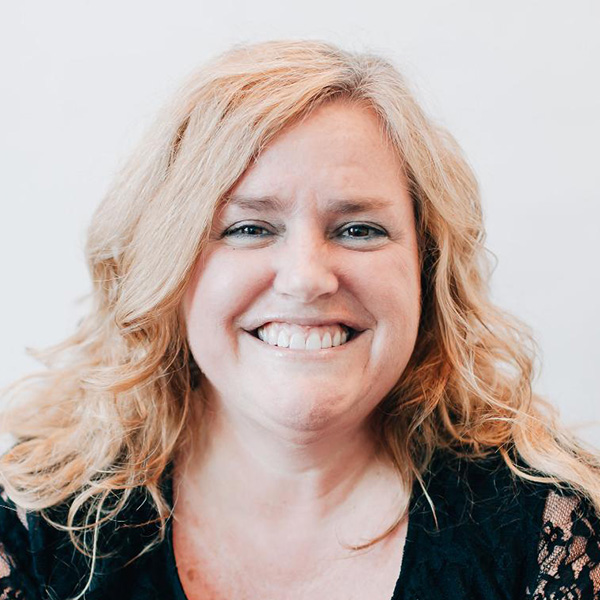
Presenter: Cathy Hockaday, Program Manager, Iowa State University
Date: June 8
Time: 9:15 – 10:30 am
The Strengthening Families Program: For Parents and Youth 10-14 (SFP 10-14) is a globally implemented, evidence-based, family-based prevention program that has proven outcomes to address the current opioid crisis. SFP 10-14 is a parent, youth, and family skills-building program designed to strengthen caregiving skills, build upon family strengths, and prevent teen substance abuse and other behavior problems. The past few years of world events has afforded SFP 10-14 the opportunity to rise above the rest by going virtual within a month of the COVID-19 shutdown, working with immigrants and refugee families, and becoming more inclusive in our language.
As a result of this session, participants will be able to:
- understand the research behind the evidence-based SFP 10-14 program
- understand the difficulty behind changing evidence-based programs
- understand how SFP 10-14 stays current in an ever changing world

Presenter: Janet Welsh, Research Professor of Health & Human Development, Pennsylvania State University
Date: June 8
Time: 9:15 – 10:30 am
As a result of this session, participants will be able to:
- Understand differences in evaluation designs and be able to select the appropriate design for their evaluation question
- Communicate evaluation results clearly and honestly to different stakeholders
- Oversee data collection, management, and analyses as part of a local evaluation
Workshop Options (10:45 – 11:45 am)

Presenter: Michael Palladini, Pharmacist Educator, Alosa Health
Date: June 8
Time: 10:45 – 11:45 am
Participants will review the prevalence of cannabis-related products in both the medical and recreational markets, with an analysis of the potential medical, psychosocial and legal impacts on patient care. Integration and collaboration with treatment providers will be discussed.
As a result of this session, participants will be able to:
- Understand the current legal landscape of the various cannabis products.
- Increase awareness of the scope of medical conditions utilizing cannabis products.
- Consider the need and potential for integration of care for patients intent on using cannabis.
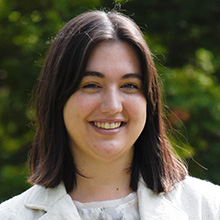
Presenter: Carlie Sloan, Doctoral Candidate, The Pennsylvania State University
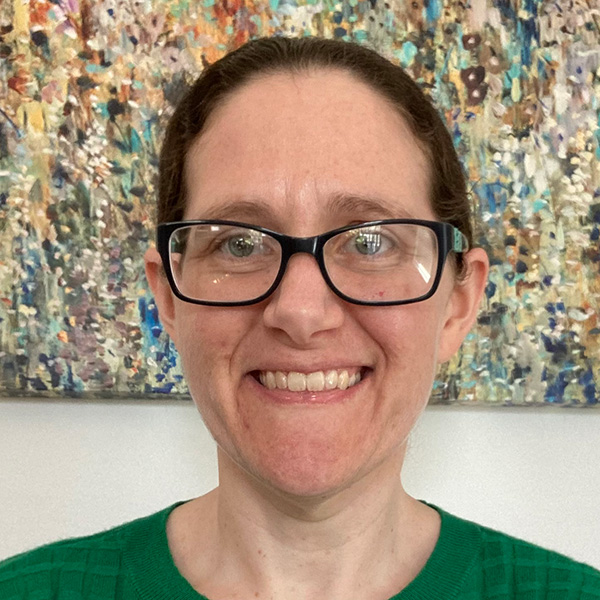
Presenter: Grace Kindt, Prevention Section Chief, PA Dept. of Drug & Alcohol Programs
Date: June 8
Time: 10:45 – 11:45 am
The use of scare tactics and threat appeals for substance use prevention has a long and controversial history in the United States. In this session, we will review the current state of the evidence around threat and fear appeals for prevention of substance use across multiple substances, age groups, and messaging types. We will draw conclusions about the (in)effectiveness of these strategies and how to incorporate our current knowledge toward implementation of effective strategies for substance use prevention. This session will be of interest to anyone involved in the research or implementation of substance use prevention strategies.
As a result of this session, participants will be able to:
- Interpret the state of evidence around threat and fear appeals in substance use prevention
- Determine what contributes to threat appeals’ ineffectiveness
- Apply knowledge gained toward more effective strategies for substance use prevention
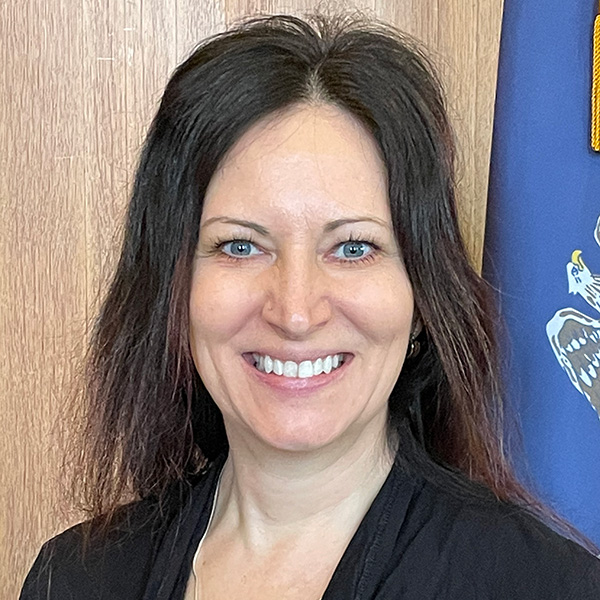
Presenter: Machel Drahnak, Alcohol Education Specialist Supervisor, PA Liquor Control Board – Bureau of Alcohol Education
Date: June 8
Time: 10:45 – 11:45 am
The Pennsylvania Liquor Control Board (PLCB) regulates the distribution of beverage alcohol in Pennsylvania, operates 600 Fine Wine & Good Spirits stores statewide and licenses 20,000 alcohol producers, retailers and handlers. Taxes and store profits are returned to Pennsylvania’s General Fund, which finances schools, health and human services programs, law enforcement and public safety initiatives and other public services.
The PLCB’s Bureau of Alcohol Education (BAE) works to educate the public about the dangers of underage and dangerous drinking through the provision of alcohol education grants and targeted prevention, education and training initiatives to assist licensees and organizations working to address irresponsible consumption.
As a result of this session, participants will be able to:
- Understand how agency profits are distributed to the General Fund, state and local government and other beneficiaries.
- Learn about the mission of the PLCB’s BAE and the training programs and resources it provides.
- Receive an overview of grants to reduce underage and dangerous drinking available through the BAE.
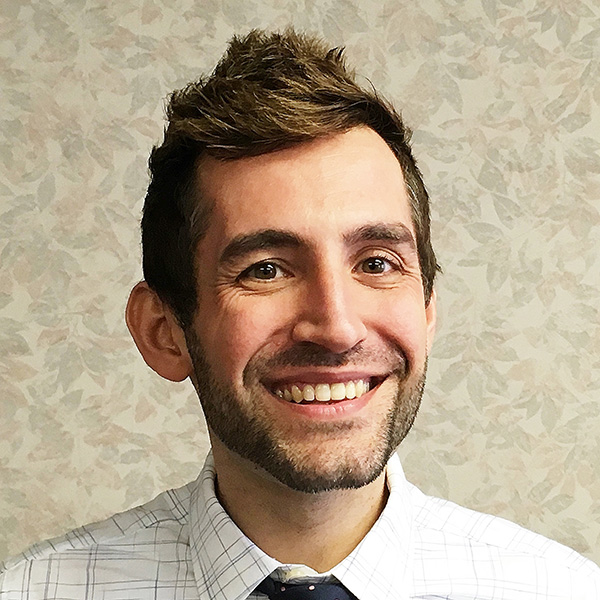
Facilitator: Lee Winterhalter
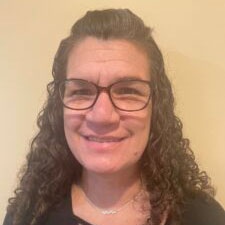
Facilitator: Kathy Collier

Facilitator: Kristina Jeanty
Date: June 8
Time: 10:45 – 11:45 am
Lunch (noon – 1:00 pm)
Workshop Options (1:15 – 2:30 pm)

Presenter: Ryan Klingensmith, Founder, Shape The Sky
Date: June 8
Time: 1:15 – 2:30 pm
If registering for Part II you must also register for Part I.
Life for youth is different now than it was years ago. That’s because teens, tweens, and children have unlimited access to information, apps, and websites. The internet can be helpful, but it can also expose youth to concerning content and behaviors that could affect their mental health.
This is where Shape the Sky comes into play; we’re dedicated to creating responsible children on smartphones and devices. We provide professionals with updated information about the internet and social media so they can provide up-to-date services in the current digital climate.
As a result of this session, participants will be able to:
- Identify how children explore and share information about mental health through technology
- Learn about the potential dangers of risky behaviors on social media, the internet, and apps.
- Learn how to use Shape the Sky resources and tools to create healthy and safe social media behaviors
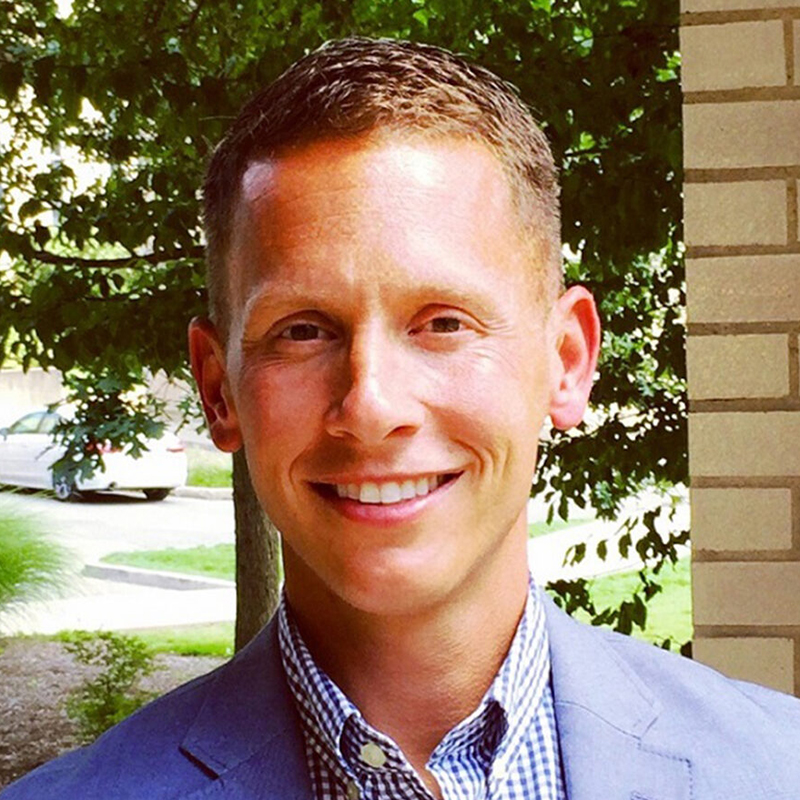
Presenter: Glenn Sterner, Assistant Professor of Criminal Justice, Penn State University
Date: June 8
Time: 1:15 – 2:30 pm
This session will provide an overview of the 2022 opioid settlement, and how it is structured to distribute funding across the Commonwealth of Pennsylvania. We will also discuss the Elevate Pennsylvania Initiative, an effort by Penn State to evaluate and share knowledge of the impacts of the settlement funding across communities in Pennsylvania. Finally, we will discuss what we are learning from the field as part of the Elevate Pennsylvania Initiative, providing helpful opportunities to consider for utilizing settlement funds.
As a result of this session, participants will be able to:
- understand the practicalities of settlement funding distributions and their intended uses.
- understand what the Elevate Pennsylvania Initiative is and how they can connect with the project group.
- identify opportunities for use of the opioid settlement funds in their communities.
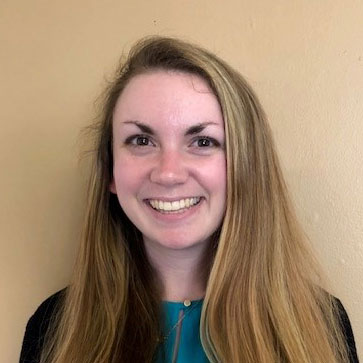
Presenters : Helen Reinbrecht
Date: June 8
Time: 1:15 – 2:30 pm
Coatesville Youth Initiative’s Coatesville Community Coalition is one of the longest-lasting non-profit community organizations in the Coatesville area. In this session, we will talk about developing and maintaining capacity and keeping coalition members engaged through community initiatives.
As a result of this session, participants will be able to:
- Engage and retain coalition members.
- Understand the Communities that Care process.
- Build capacity through data analysis and relationship building
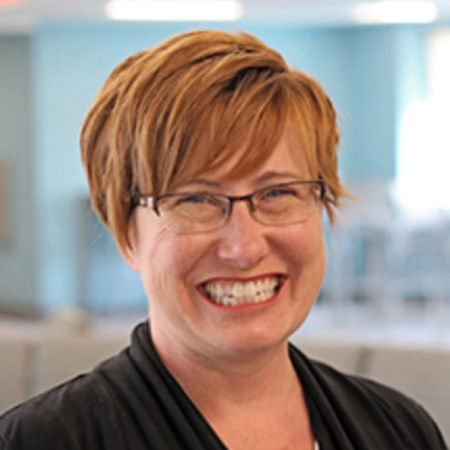
Presenters : Mary Culshaw, Owner, Culshaw Occupational Therapy
Date: June 8
Time: 1:15 – 2:30 pm
As a result of this session, participants will be able to:
- identify common characteristics of FASD which contribute to daily functioning and behavior
- describe how to analyze an activity, environment and the individual to find successful solutions to issues.
- identify strategies to mitigate barriers to learning and everyday life.
Power Session Options (2:45 – 3:15 pm)

Presenters : Katie Kucz, Prevention Coordinator, Montgomery County Department of Health & Human Services Office of Drug & Alcohol
Date: June 8
Time: 2:45 – 3:15 pm
Utilizing the Drug & Alcohol Prevention Needs Assessment and Strategic Planning process, Montgomery County Single County Authority (SCA) expanded prevention services to colleges and universities. Through an integrated approach with the Office of Mental Health, the SCA is engaging the 11 colleges and universities in Montgomery County with strategic planning, implementation of prevention programming, and mini grants. The presentation will give an overview of the needs assessment, discuss college engagement strategies, and highlight current initiatives.
As a result of this session, participants will be able to:
- Interpret county level data used to form project scope
- Describe how strategic planning can be used on college campuses
- Apply Montco project activities to own locality

Presenters : Janice Balmer, Public Health Consultant, Project Manager, Community Health Council of Lebanon
Youth vaping is an epidemic. Public health professionals know it, as do school administrators. But what can we do about it? How do we help kids who have become addicted to vaping as a means of dealing with life? What can be done when a parent supplies the vape, believing they’re helping their kid cope? How do we work with school administrators who are overwhelmed recovering from the pandemic? And what about THC/opioid-laced vapes?
In this lively and interactive session, join Janice to learn how Lebanon County is grappling with these issues. Janice will discuss the Lebanon County Youth Tobacco and Vaping Coalition’s strategy–from resource allocation, to implementation and funding. This session is a real-life case study–the good, the not great, and everything in between! Appropriate for public health professionals; coalition members; and school staff, Janice hopes to spark idea sharing among attendees.
As a result of this session, participants will be able to:
- Describe the youth vaping epidemic, from both a quantitative and qualitative perspective.
- Evaluate resources and activities they can access to address youth vaping in their community.
- Create a strategy to implement an anti-vaping work team/coalition in their community.

Presenters : Lee Winterhalter, Prevention Supervisor, Fayette County Drug & Alcohol Commission
Date: June 8
Time: 2:45 – 3:15 pm
Through parternships with state organiztaions, CPA has made available the PA Start messaging campaign. Are you using it? Learn ways to utilize materials available to all of us through PA Start, and how to implement an effective media campaign using these materials. This short yet robust session will allow you the opportunity to see examples of how the PA Start messaging campaign was used in a variety of ways.
As a result of this session, participants will be able to:
- Identify unique ways to utilize the PA Start messaging campaign.
- Evaluate the tools utilized in a marketing campaign.
- Take away items that can be utilized in your communities.

Presenter: Geoff Kolchin, Deputy Director, OJP Unit of Violence Prevention Initiatives, PA Commission on Crime & Delinquincy

Presenter: Phyllis Law, Senior Systems Change Specialist, Evidence-based Prevention and Intervention Support (EPIS) @ Penn State
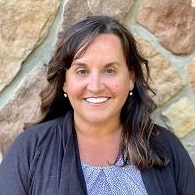
Presenter: Alise Barr, (PAYS) Support and Development Specialist, PA Commission on Crime & Delinquincy
Date: June 8
Time: 2:45 – 3:15 pm
As a result of this session, participants will be able to:
- Help guide the continued growth and usefulness of PAYS by local stakeholders and school leadership.
- Review, discuss, and better understand their 2021 PAYS data and how that can improve use of local data to drive prevention.
- Consider how local PAYS results compare to State Data and how those differences should drive targeted local efforts.
Plenary (3:35 – 5:00 pm)

Presenter: Dr. Amelia Arria, Professor , University of Maryland School of Public Health
Date: June 8
Time: 3:35 – 5:00 pm
This presentation will be relevant to individuals who work with adolescents and young adults through schools and community-based organizations. Evidence-based approaches for addressing underage and excessive drinking and other forms of substance use will be presented. Parent-focused strategies will be described. Substance use prevention will be framed to encourage students to fully engage in academic and other meaningful pursuits. Research findings will be translated into practical actions for parents, policy makers and community stakeholders.
As a result of this session, participants will be able to:
- Describe evidence-based approaches for reducing underage and excessive drinking
- Understand how alcohol and other drug use can interfere with academic achievement and other outcomes
- Implement strategies for parents and prevention professionals to reduce youth substance use and promote their success
Friday, June 9 (blue highlighted columns are the sessions available virtually)
CPA “Reimagining Prevention” (8:30 – 9:00 am)
Keynote (9:00 – 10:00 am)

Presenter: Dr. Allison Stephens, Director of Networks and Policy, HOPE National Resource Center
Date: June 9
Time: 9:00 – 10:00 am
Join us as we discuss the three main ideas behind The Healthy Outcomes from Positive Experiences (HOPE) Framework:
• All children need equitable access to key types of Positive Childhood Experiences (PCEs) to thrive, and all adults and systems who interact with children have the ability to promote this access;
• For providers and community members to meaningfully engage with children and families, it’s critical that they use a strengths-based lens and move away from the deficit-based framework that many of our systems were built on.
• Children, youth, and families need to be equal partners in all aspects of care.
As a result of this session, participants will be able to:
- describe the key types of Positive Childhood Experiences that promote adult health.
- analyze how their community defines each Building Block of the HOPE framework.
- make a commitment to incorporate HOPE into one aspect of their work.
Workshop Options (10:30 – 11:45 am)

Presenter: Danielle Suber, Head of Inclusivity and Belonging, Malvern Preparatory School
Date: June 9
Time: 10:30 – 11:45 am
Diversity, equity, and inclusion engage layers of complexity when striving to build a positive inclusive school culture. Religious communities add an additional consideration to the way school culture is approached. Unique considerations include engaging external entities, like the church, and taking their significant role in implementing inclusion and belonging as a key driver or impediment. With an examination of the differences in practices at two single-sex schools, this session will explore the challenges facing independent Catholic schools and ways in which schools can move DEI work forward as a testament to their mission.
As a result of this session, participants will be able to:
- Describe the challenges of DEI in Catholic Independent Schools
- Analyze the differences in single sex schools and their approach to DEI
- Learn tactics schools can use to further DEI work
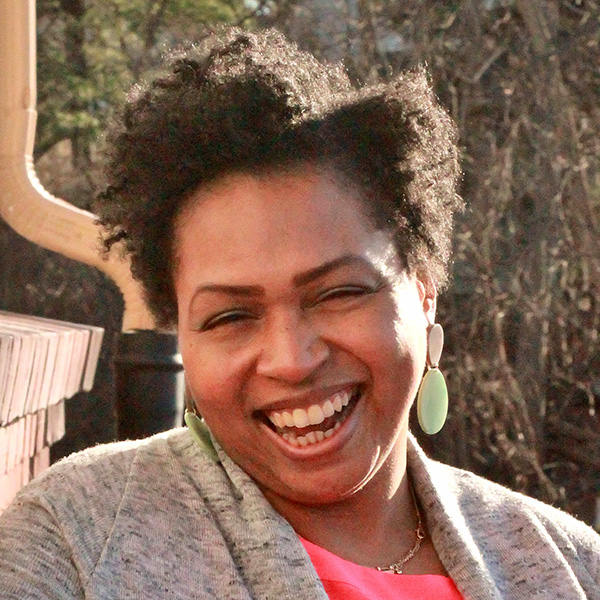
Presenter: Ashley Wilson, Founder, CEO, Director, Rewritten of Tioga County
Date: June 9
Time: 10:30 – 11:45 am
There is a generation of abolitionists rising that want to know more about the issue of human trafficking, populations impacted by this issue and solutions that can be put in place to end this detrimental cycle of abuse.
Along with this, there is an interest to learn more about and partner with organizations that are at the forefront of this work.
Equally important to this conversation is the stability of those organizations. Having a healthy team and work culture is key so an organization can thrive and serve the populations they are called to with passion, excellence, and authenticity.
Interested participants should look forward to both areas ( human trafficking awareness & healthy workplace culture) being discussed within this session.
As a result of this session, participants will be able to:
- Describe a basic overview of human trafficking, populations impacted by it, and solutions to ending it.
- Evaluate the importance of a healthy organization and how that affects daily productivity and how individuals are served.
- Implement practices that can be put in place to alleviate second hand trauma and burnout.
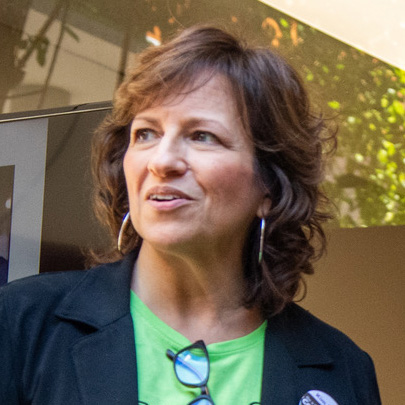
Presenter: Kim Porter, Executive Director, Be a Part of the Conversation

Presenter: Laura Shapella, Prevention Supervisor and SAP Liaison, Aldersgate Youth Services Bureau

Presenter: Katie Kucz, Prevention Coordinator, Montgomery County Department of Health & Human Services Office of Drug & Alcohol
Date: June 9
Time: 10:30 – 11:45 am
Talking with youth about cannabis can be complex and anxiety provoking. Many young people have strong convictions about cannabis use, including its safety, the percentage of students who are using it, the efficacy of medical marijuana, and the potential for behavioral health challenges, including addiction. Preventions specialists and school personnel are invited to learn about the Youth Marijuana Prevention Project, and the “Need to Know” curriculum. This resource was developed for 5th through 12th grade students with the goal of providing fact-based information, including risks associated with cannabis use.
As a result of this session, participants will be able to:
- Describe the risks associated with cannabis use that will equip students to make decisions that impact their wellbeing.
- Create a safe, affirming, non-judgmental, and respectful environment where students feel supported.
- Guide conversations toward the mission of empowering students to make the most informed choice about cannabis use.

Presenter: Dr. Allison Stephens, Director of Networks and Policy, HOPE National Resource Center
Date: June 9
Time: 10:30 – 11:45 am
As a result of this session, participants will be able to:
- describe how HOPE and Strengthening Families intersect.
- incorporate the Four Building Blocks of HOPE into the way they talk about protective factors with families.
- implement one component of the HOPE framework into their work with children and families.
Hotel Information
THE PENN STATER CONFERENCE CENTER HOTEL ROOM RATE
Standard Double and Standard King Rooms: $127*
*Rooms are subject to an 8.5% occupancy tax plus 6% sales tax. If your organization is tax-exempt, you must provide documentation at check-in.
OVERNIGHT ACCOMMODATIONS RESERVATION PROCEDURES
There are two ways to reserve your room at the Penn Stater Conference Center Hotel for the room rate listed above. Reservations must be made no later than Friday, May 5, 2023 by 11:59 pm to receive this rate. Both methods require a credit card to hold your room.
1) Call the Central Reservations Department at 1-800-233-7505 and identify yourself as part of the Commonwealth Prevention Alliance (CPA) Conference. Group Code: CPAC23A.
2) Use the following secure booking link to book your room: BOOK YOUR CPA ROOM AT THE PENN STATER HOTEL & CONFERENCE CENTER
All reservations made after May 5, 2023 will be made on a space-available basis and will be booked at the hotel’s rate at the time of booking.
The Penn Stater Hotel and Conference Center is a non-smoking facility. All guestrooms are NON- SMOKING. Should a guest smoke in their guestroom, a $250.00 fee will be charged for cleaning the guestroom. The fee will be charged to the credit card placed on Guest’s reservation at check-in.
Cancellations received within 24 hours of arrival date AND no-shows are subject to a cancellation charge equivalent to a one-night stay, and will be charged to the credit card provided at time of reservation.
Late departures must be requested and approved in advance. Departures after 11:00 am and prior to 4:00 pm will be charged a late departure fee of half the guest’s confirmed guestroom rate. Departures after 4:00 pm will be charged an additional full-night’s confirmed guestroom rate. Charges will be applied to the credit card provided at time of check-in.
Overflow Hotel Information
Comfort Suites near Penn State
139 Village Drive
State College, PA 16803
- King Suites and Queen Suites are available at a rate of $149 plus tax. Reservations can be booked online here, or by calling 814-235-1900 and mentioning “Commonwealth Prevention Alliance”.
- The cutoff date to book is Tuesday, May 16, 2023.
- Individual cancellations must be received no later than 4 p.m. three days prior to arrival to avoid a cancellation fee of one night room and tax.
Toftrees Golf Resort
One Country Club Lane
State College, PA 16803
- Double rooms are available at a rate of $109 plus tax. Reservations can be booked online here, or by calling 814-234-8000 and mentioning “Commonwealth Prevention Alliance”.
- The cutoff date to book is Monday, May 15, 2023.
- Individual cancellations must be received no later than 48 hours prior to arrival to avoid a cancellation fee of one night room and tax.
Cancellation, No-Show, and Substitution Policy for In Person and Virtual Events
To cancel a 2023 conference registration and request a refund, you must contact Jeff Hanley, via email, at jeff.hanley@commonwealthpreventionalliance.org by May 19, 2023, 4:00 p.m. EST. For cancellations made by this date and time your registration fee will be refunded, less a $25 administrative fee.
No refunds will be given for cancellations made after May 19, 2023, at 4:00 p.m. Conference no-shows will forfeit all registration fees paid to the Commonwealth Prevention Alliance.
If you want to switch to a virtual registration option (from an ‘ in person’ registration) after May 19, 2023, we are unable to give an adjustment in cost. While you certainly can switch to the virtual format, you must indicate this change by May 19, 2023, or you will still be charged for the full ‘in-person’ rate. You can switch from a virtual registration to an in-person registration up to May 19, 2023, and pay the additional costs. We apologize for any inconvenience this causes, but due to our contractual and financial obligations with the Penn Stater, we are unable to make this adjustment after May 19, 2023.
All registration payments must be received by Friday, June 2, 2023. The Commonwealth Prevention Alliance reserves the right to refuse admission if full payment is not received prior to the event.
Registrants may request to send a substitute to the in-person or virtual event up to Friday, June 2, 2023. To do so, please contact Jeff Hanley, at jeff.hanley@commonwealthpreventionalliance.org.
Conference Sponsors
CPA is incredibly grateful to our state partners who value, support, and assist in guiding the prevention efforts across Pennsylvania.
- Thank you to the PA Department of Drug and Alcohol Programs (DDAP) for their conference sponsorship!
- Thank you to the PA Commission on Crime and Delinquency (PCCD) for providing full conference scholarships!
- Thank you to the Evidence-based Prevention and Intervention Support (EPIS) for their conference presentation and continued support of CPA’s events and initiatives!





